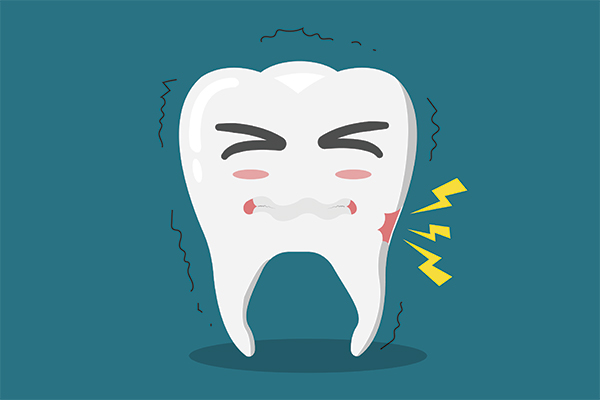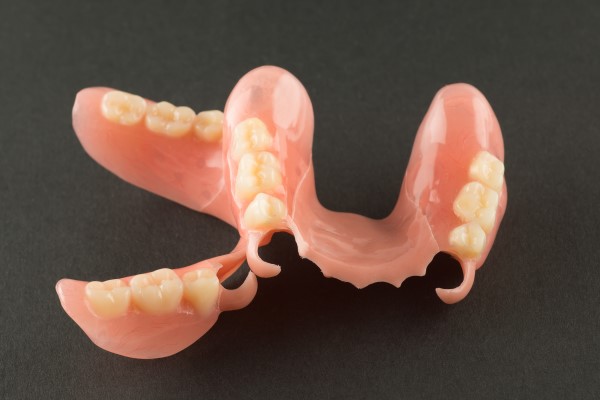Is it a Dental Emergency if You Break a Molar Tooth?

Breaking a molar is classified as a dental emergency. It is one of those things most people would rather not deal with, but it can occur regardless of how healthy one's teeth are.
Dental emergency 101: Dealing with a broken molar
First off, a broken tooth should not be confused with a chipped or cracked one. Most chips and cracks do not require immediate emergency treatment. The person simply needs to be careful about the type of foods they bite into while one of their teeth is damaged. It is best to avoid hard foods and extreme temperatures when dealing with a cracked or chipped tooth. Over-the-counter medication can be used to manage any pain associated with the injury while the patient waits for a dental appointment.
A broken molar is a more serious issue that requires immediate treatment. It can be caused by a tooth being weakened by a cavity or a blow to the face.
What to do after breaking a tooth
While getting ready to head out to the emergency dentist, rinse the mouth out with saltwater or warm water. Use a cold compress to reduce any inflammation that accompanies the injury. Apply gauze to the area to stop any bleeding, or a wet tea bag can be used if gauze is not available. The bleeding should stop within 10 minutes. Over-the-counter pain medication can be taken as needed
Patients who have a severely broken tooth are advised to see a dentist within a day of the injury occurring. If that is not possible, the patient should use dental cement to cover up the broken tooth while waiting for an appointment.
If a tooth is completely knocked out, patients are advised to store the lost tooth in a container with warm milk or saliva. The tooth should be handled by grabbing its crown and not its root. Just as with a broken tooth, a knocked-out tooth requires immediate treatment.
In many cases, the tooth can be successfully reattached if the patient gets treatment within a few hours of the injury occurring. Ignoring a knocked-out tooth should never be an option since it can lead to severe nerve damage. If the dentist is unable to reattach the tooth, it might be replaced with a dental restoration like an implant.
How a dentist treats broken teeth
Dentists and patients have a few options to choose from when it comes to treating and repairing a broken tooth:
- Dental bonding: During this procedure, the dentist applies a composite resin directly to the damaged tooth. The resin is tooth-colored and it is molded as desired to restore the appearance of the tooth.
- Root canal: If the break makes its way into the pulp chamber, a root canal may be performed to clean out the tooth's soft tissues and nerves.
- Crowns: A severely damaged tooth may be covered up with a crown to protect it from breaking apart into smaller pieces.
Dealing with a broken tooth?
A dental emergency like a broken molar should not be left for a regular dental appointment. Seek immediate care to deal with pain and prevent the issue from worsening.
Request an appointment here: https://www.providencefamilydentistry.com or call Providence Family Dentistry at (678) 496-7021 for an appointment in our Mableton office.
Check out what others are saying about our dental services on Yelp: Dental Emergency in Mableton, GA.
Recent Posts
An emergency dentist provides the urgent dental care you need when you need it. Minor dental issues like cavities do not get significantly worse if they are not treated immediately, but issues like an infection can become a life-threatening issue during that period. People who cannot afford to wait for a routine dental appointment to…
Halitosis is the general dentistry term for chronic bad breath, which means it is constant and does not go away. Although it may be surprising, a lot of people struggle with halitosis every single day. Thankfully, in general dentistry, there are a lot of ways to manage and treat the condition. Below is an overview of…
Not flossing regularly can increase the risk of developing oral health concerns, such as dental cavities and periodontal disease, so a general dentist encourages patients to floss several times a day and stick to a consistent oral care schedule to reduce the risk of oral health complications in the future. Flossing is essential to good oral…
If you find a cavity, you may make an appointment with your general dentist to fix it. However, there are some ways that you can reverse mild tooth decay. Fillings are not your only option if the cavity is still very small. Keep reading to learn more.Some studies have suggested that diet changes can reverse…


